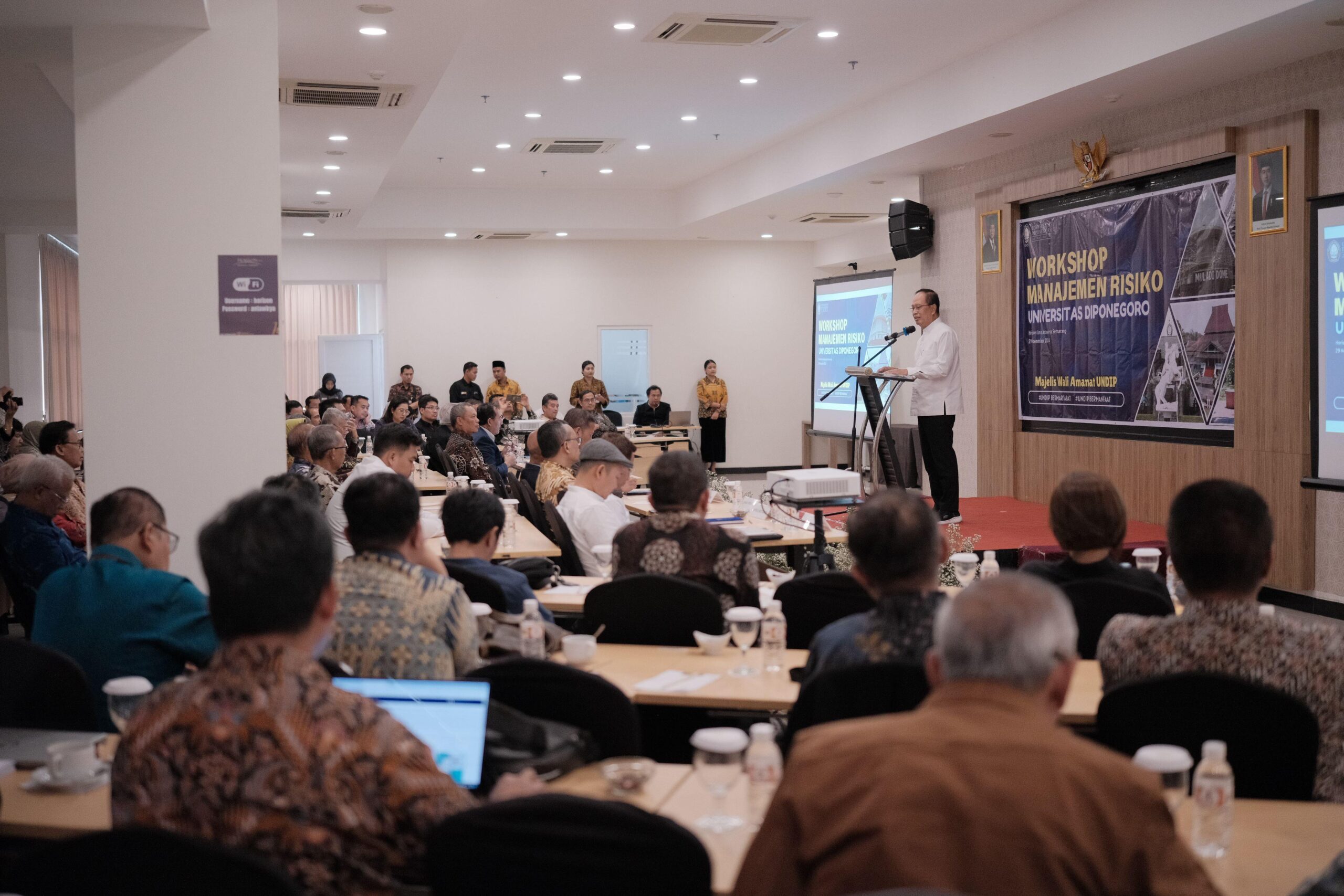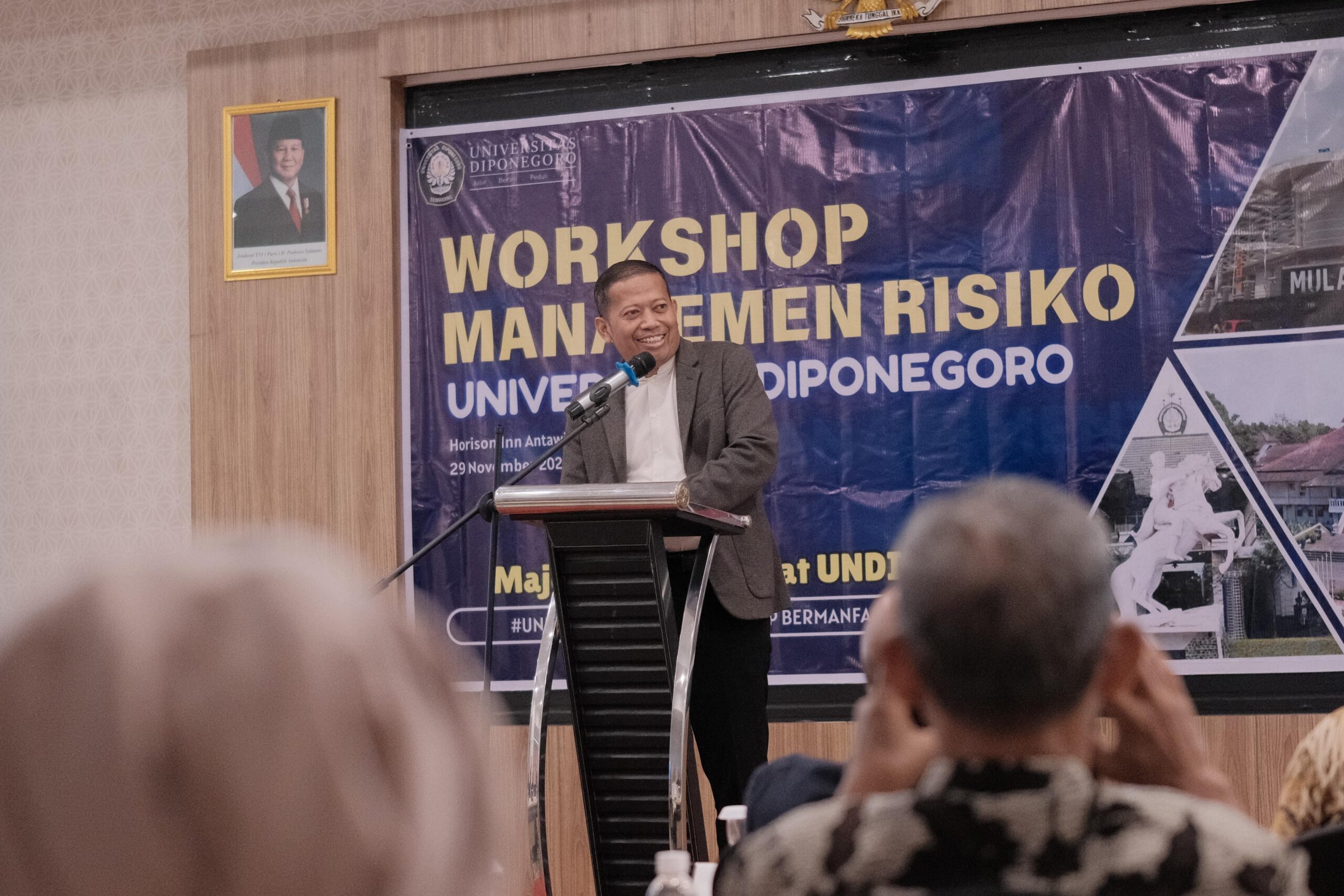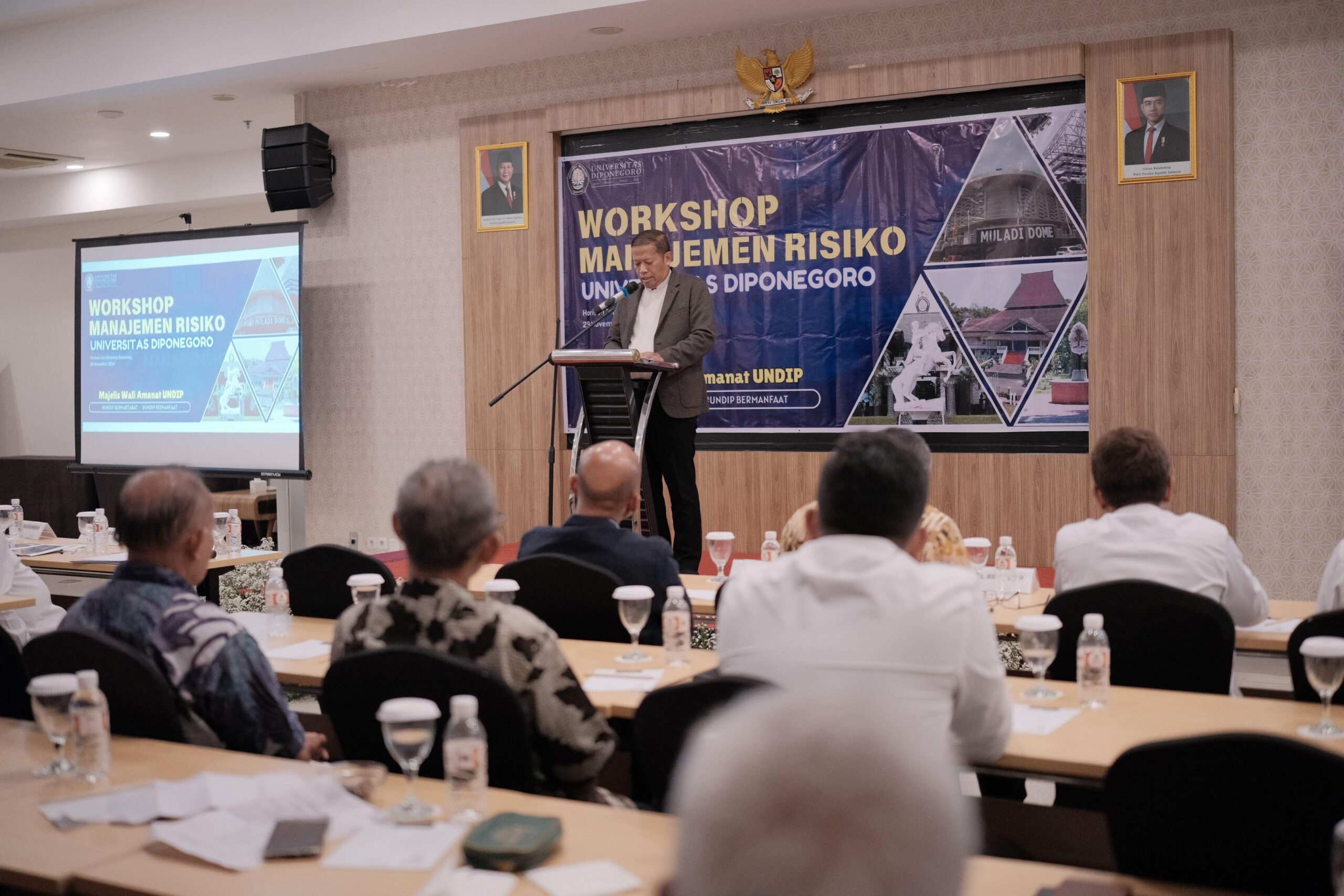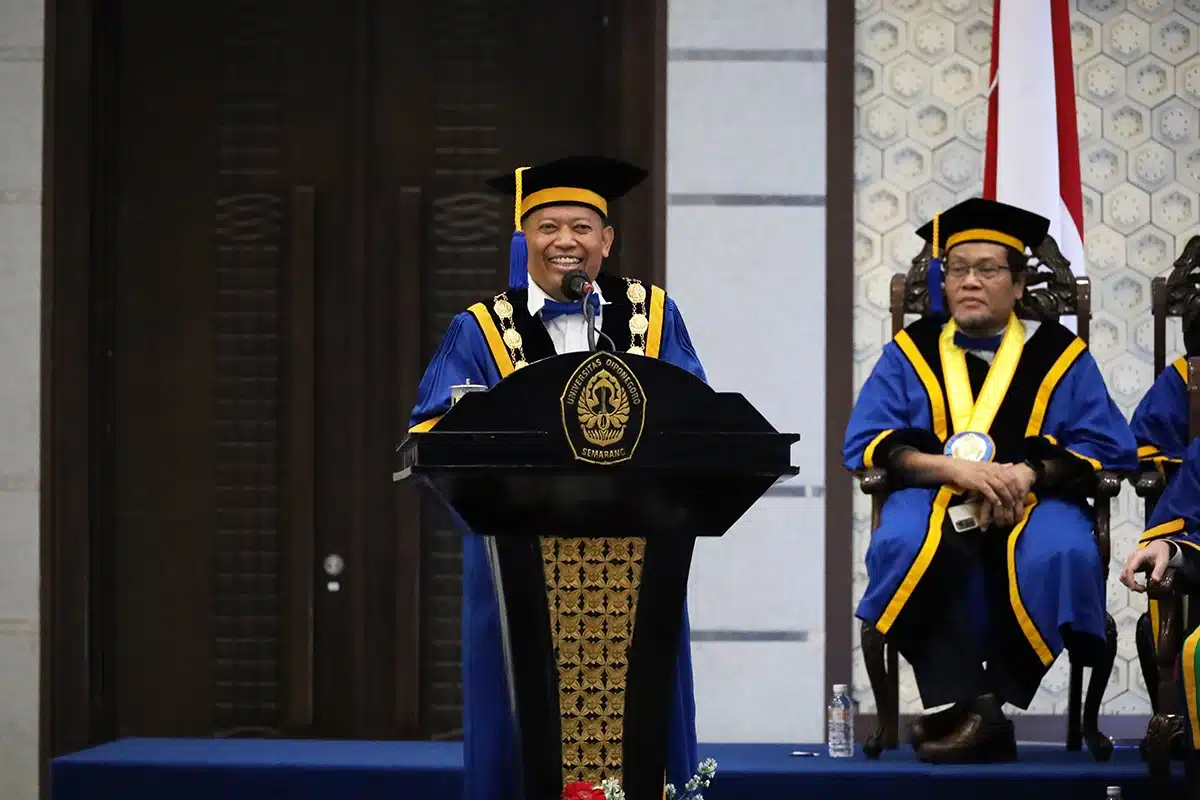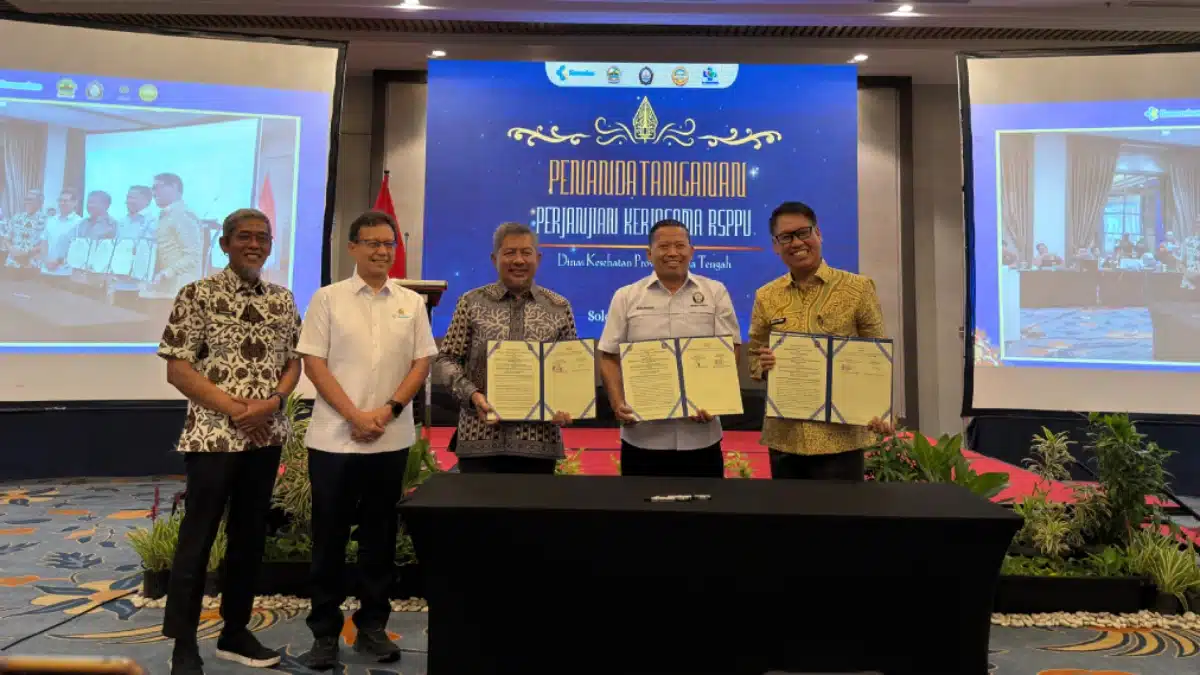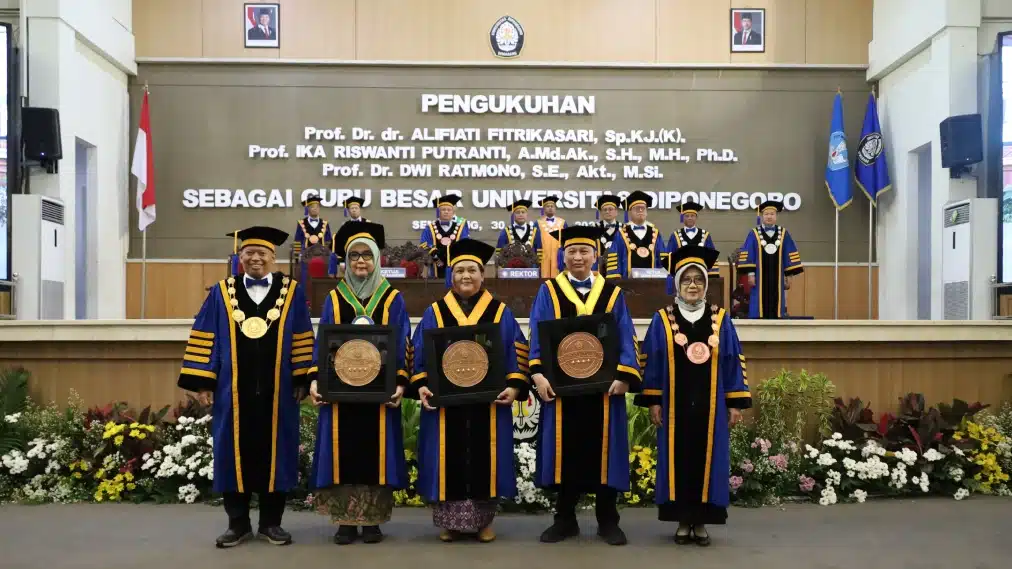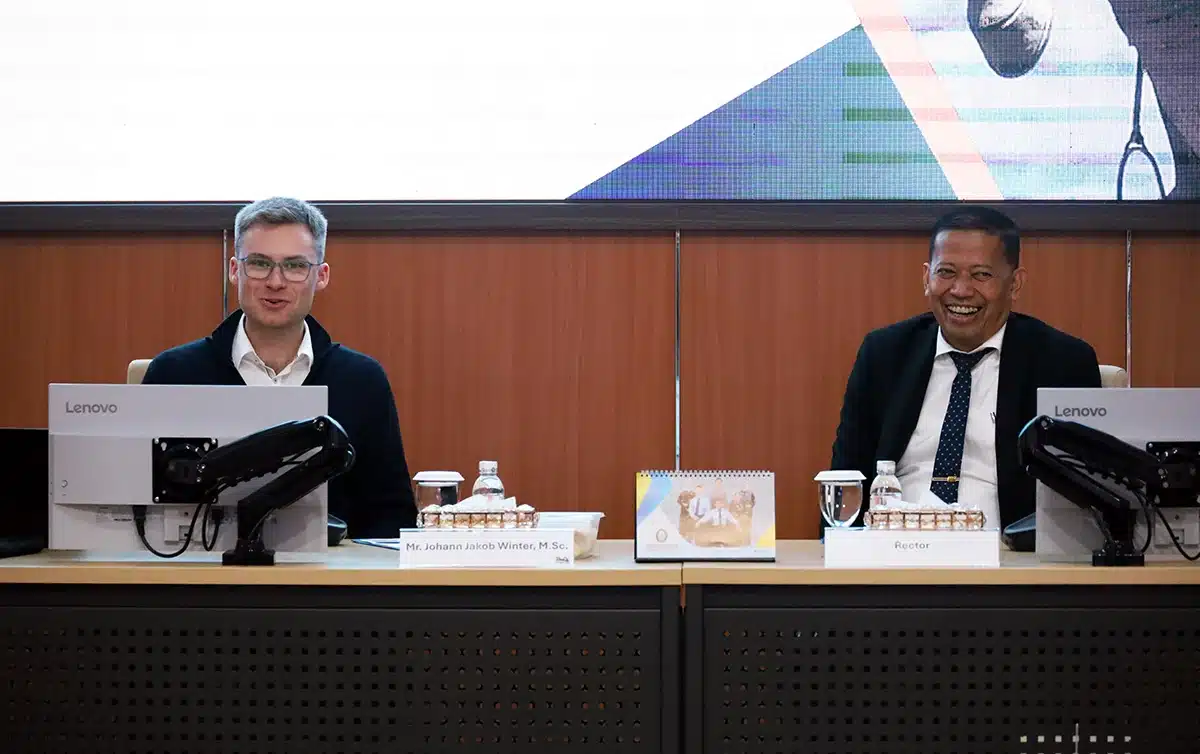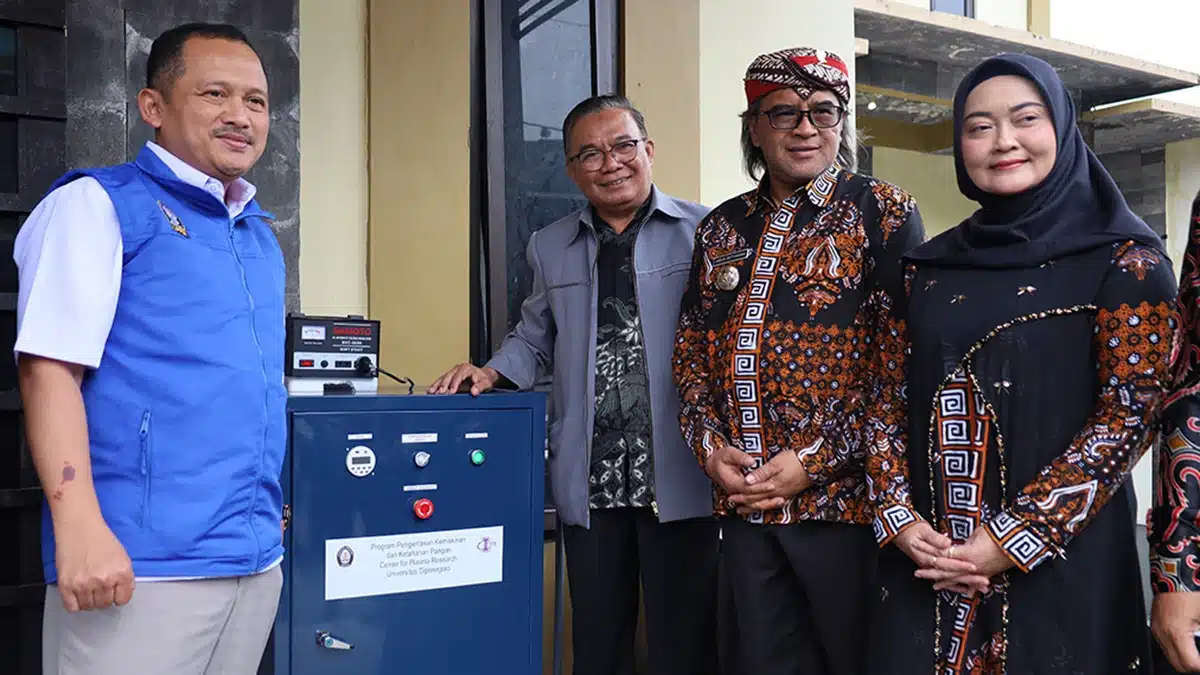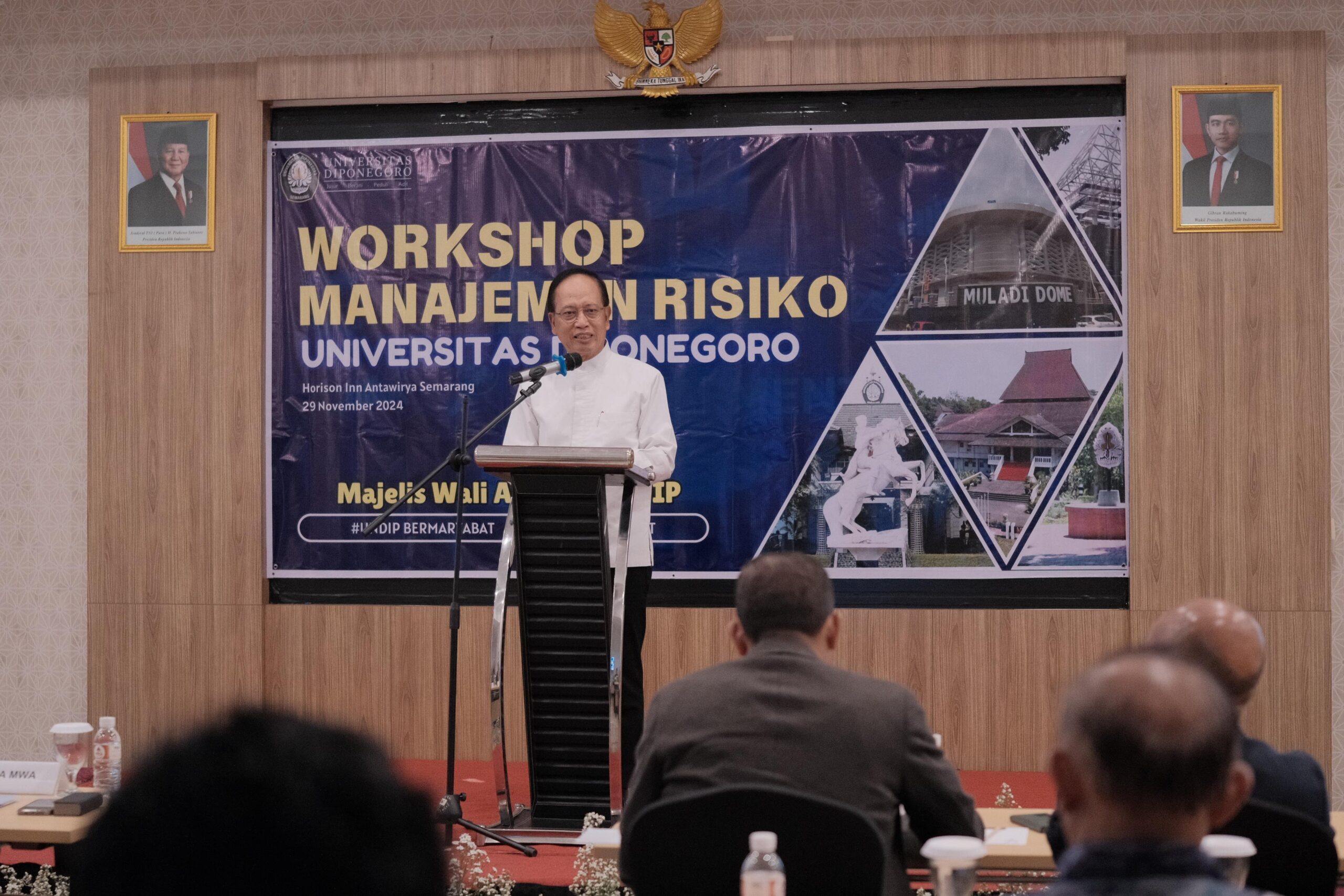Semarang, November 29, 2024 – The Board of Trustees of Universitas Diponegoro successfully organized the Universitas Diponegoro Risk Management Workshop at Horison Inn Antawirya, Prof. Sudarto Street, Tembalang (29/11). This strategic initiative aims to realize Good University Governance (GUG) while strengthening the Government’s Internal Control System (Sistem Pengendalian Intern Pemerintah / SPIP) within the university environment.
In his opening remarks, the Rector of Universitas Diponegoro, Prof. Dr. Suharnomo, S.E., M.Si., emphasized the importance of implementing risk management to enhance institutional governance. He highlighted that risk management is a crucial element in addressing the challenges and complexities of the higher education landscape.
Dr. Darsono, S.E., Akt., M.B.A., Secretary of the Audit Committee of Universitas Diponegoro, introduced the urgency of applying risk management at the university level. He explained that risk management is not merely a mitigation tool but also a strategic framework to improve operational efficiency and accountability.
The workshop aimed to align perceptions and understanding of risk management to ensure the achievement of performance targets set by Universitas Diponegoro. It featured experienced speakers who excel in the field.
The first speaker, Prof. Mohamad Nasir, Akt., M.Si., Ph.D., Chair of the Board of Trustees of Universitas Diponegoro, presented on the theme “Realizing Universitas Diponegoro as a Good University Governance (GUG)”. The final session was led by Babas Bastaman, STP, M.Si., Senior Executive Vice President of Financing Risk at Bank Syariah Indonesia (BSI), who shared insights on “Risk Management Practices in Banking and Recommendations for Risk Management in Higher Education Institutions.”
The interactive discussion, moderated by Prof. Dr. Ir. Agus Indarjo, M.Phil., generated valuable input on implementing risk management in universities.
In the workshop’s closing session, Prof. Mohamad Nasir, Akt., M.Si., Ph.D., expressed his hopes that all participants, including university leaders, faculty members, and administrative staff, could apply the knowledge gained to improve the quality of institutional governance.
